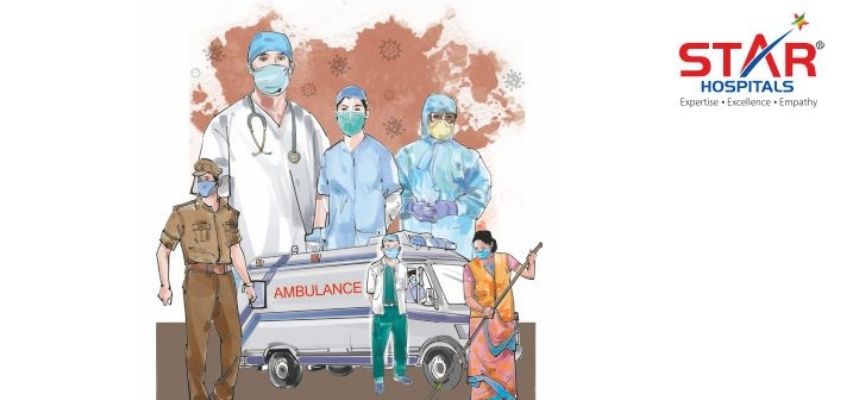Learn these preventive tips to combat heart attack

There are approximately 30 million heart patients and about 2 lakh surgeries performed in India. World Heart Day is observed on 29 September and we need to create awareness on how we can minimize the deaths and major consequences of heart attacks. The hazard of sudden cardiac arrest can be minimized if the situation is handled properly.
 Early treatment in case of heart attack is a life-saver for those who wait for hours to seek medical help. Excerpts from Dr. Ramesh Gudapati, MD, DM, Chief of Cardiology, STAR Hospitals, Hyderabad.
Early treatment in case of heart attack is a life-saver for those who wait for hours to seek medical help. Excerpts from Dr. Ramesh Gudapati, MD, DM, Chief of Cardiology, STAR Hospitals, Hyderabad.
Q1. What is Heart Attack?
A. It is a condition when the blood supply to the heart is cut off all of a sudden. This happens when a blood clot in the artery stops or blocks the incoming, nutrient and oxygen rich blood. When the heart muscle is not receiving any blood supply, the heart stops functioning and collapses. One should never delay in getting a medical treatment as more the delay, faster the rate of heart collapsing. Reach the hospital emergency ward immediately so that survival chances can be increased and less damage is inflicted on the heart.
Q2. What are the symptoms for a heart attack?
A. The symptoms of heart attack are:
![]() It usually begins with a chest pain that is constructing or squeezing in nature. People often say that they experience a heavy burden in their chest, more like a crushing experience.
It usually begins with a chest pain that is constructing or squeezing in nature. People often say that they experience a heavy burden in their chest, more like a crushing experience.
![]() Burning sensation is also accompanied with the chest pain.
Burning sensation is also accompanied with the chest pain.
![]() The pain often radiates to the left arm. The left arm may feel heavy and regular tasks with the arm may feel troublesome.
The pain often radiates to the left arm. The left arm may feel heavy and regular tasks with the arm may feel troublesome.
![]() The pain lasts between 30 minutes till few hours.
The pain lasts between 30 minutes till few hours.
![]() The intensity of pain will vary in between this time but it gets severe and intolerable when it is at the peak.
The intensity of pain will vary in between this time but it gets severe and intolerable when it is at the peak.
![]() The patient may sweat profusely. He may also complain of suffocation.
The patient may sweat profusely. He may also complain of suffocation.
![]() Many patients of heart attack may not experience the symptoms. Women especially tend to show these symptoms moderately to none.
Many patients of heart attack may not experience the symptoms. Women especially tend to show these symptoms moderately to none.
Q3. What should one do in case of a heart attack?
A. When you see these symptoms in someone and realize it is a situation of heart attack, seek immediate medical help.
![]() Stop performing any physical activity and lay down.
Stop performing any physical activity and lay down.
![]() If you are driving, park the vehicle at a safe place and ask someone to drive you to the hospital.
If you are driving, park the vehicle at a safe place and ask someone to drive you to the hospital.
![]() If the patient already has a heart history, put a tablet ‘Sorbitrate’ under his tongue.
If the patient already has a heart history, put a tablet ‘Sorbitrate’ under his tongue.
![]() If the patient is conscious then give him an Aspirin tablet to swallow or chew.
If the patient is conscious then give him an Aspirin tablet to swallow or chew.
Q4. Do all heart patients have these symptoms?
A. No, heart attack symptoms vary from person to person and may not always be classical in nature. This is the reason why there is a need to create awareness about the varying symptoms of heart attack. These symptoms and early medical help will prove beneficial in limiting the deaths due to heart attacks in India.
For Appointments : Dr. Ramesh Gudapati, MD, DM, Chief of Cardiology, STAR Hospitals, Hyderabad.

 Disclaimer: Welthi.com does not guarantee any specific results as a result of the procedures mentioned here, and the results may vary from person to person.
Disclaimer: Welthi.com does not guarantee any specific results as a result of the procedures mentioned here, and the results may vary from person to person.









